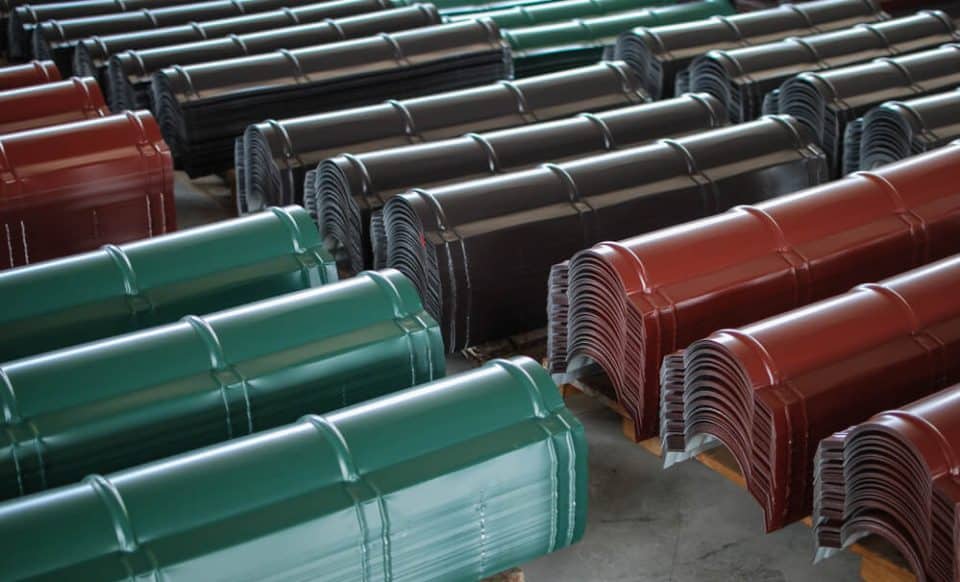Unmasking Common Misunderstandings About Metal Roof
Introduction
Metal roofing has actually acquired considerable popularity over the last couple of years, specifically among house owners and industrial residential or commercial property managers. However, despite its increasing acceptance, numerous misconceptions still cloud individuals's understanding of metal roofing. This article intends to dissect these misconceptions and provide clear, accurate info to assist readers make informed options about their roofing needs. Whether you're a homeowner thinking about roofing system replacement or an industrial structure supervisor looking for long lasting choices, comprehending the truths of metal roofing can conserve you time and money.
What is Metal Roofing?
Metal roofing refers to roof made from metal pieces or tiles. These roofs are normally made from products like steel, aluminum, copper, or zinc. They can be available in various styles and surfaces to match different architectural styles.
Debunking Typical Mistaken beliefs About Metal Roofing
When it comes to domestic and industrial roofing, metal roofing typically deals with suspicion. Let's take on some of the most common mistaken beliefs head-on.
Misconception 1: Metal Roofs Are Loud When It Rains
One of the most prevalent misconceptions is that metal roofings produce extreme sound during rainstorms or hail showers. While it holds true that metal can be louder than conventional shingles when it rains, this understanding ignores contemporary setup techniques.
- Reality Check: Noise deadening insulation can significantly reduce sound levels. Furthermore, when installed over strong decking rather than simply battens, a metal roof becomes quieter. Many house owners report that with appropriate insulation, they hardly observe the sound from rain at all.
Misconception 2: Metal Roofs Are Too Expensive
People typically perceive metal roof as expensive compared to traditional materials like asphalt shingles.
- Reality Check: While the initial expense might be higher-- ranging from $120 to $900 per square-- it's important to think about long-lasting cost savings. A well-installed metal roofing system can last 50 years or more with very little maintenance, making it an economically sound choice over time.
Misconception 3: Metal Roofs Will Rust Over Time
Another typical belief is that metal roofs will rust rapidly and need continuous repairs.
- Reality Check: Modern advancements in metal finishes have removed this issue for the majority of homeowners. Galvanized steel and aluminum are treated with protective coatings that prevent rusting and corrosion.
Understanding Different Types of Metal Roofing
With numerous kinds of metals available for roofing applications, understanding their attributes can guide you toward the very best option for your building's needs.

Steel Roofing
Steel is one of the most popular options due to its strength and versatility.
- Galvanized Steel: Coated with zinc to prevent rust.
- Galvalume Steel: Covered with a combination of aluminum and zinc for boosted durability.
Aluminum Roofing
Lightweight yet highly resistant to rust makes aluminum perfect for seaside locations where salt spray is prevalent.
Copper Roofing
Aesthetic appeal is one of copper's biggest selling points; however, it's likewise amongst the most expensive choices available due to its durability and low upkeep needs.
Advantages of Metal Roofing
Metal roofs provide many advantages that make them an attractive option for both property and business residential or commercial properties:
Common Misunderstandings about Installation
Misconception 4: DIY Installation Is Easy
While setting up a roofing system might seem straightforward, specifically with online tutorials available today, lots of ignore the complexity associated with setting up a metal roof properly.
- Reality Check: Working with a certified roofer guarantees quality work while sticking strictly to security policies and developing codes.
Misconception 5: All Professionals Can Install Metal Roofing
Not every professional concentrates on metal roofing systems; hence working with someone without experience might result in expensive errors down the line.
- Reality Check: Constantly look for a specialized commercial roofer who has specific experience with your chosen product type for optimum outcomes on your project!
Metal Roofing systems vs Traditional Roofs
As discussed previously, there are numerous aspects contributing towards making an informed choice in between conventional roofs (like asphalt shingles) versus opting for metal roofs:

|Feature|Metal Roofing|Conventional Asphalt Shingles|| ----------------------|------------------------------------|----------------------------------|| Life-span|50+ years|15-30 years|| Upkeep|Low|Moderate|| Energy Performance|High|Moderate|| Cost|Higher preliminary cost|Lower preliminary expense|| Fire Resistance|Excellent|Varies|
FAQs About Metal Roofing
1. Does insurance cover damage caused by hail on a metal roof?
Yes! Most homeowner's insurance plan cover hail damage regardless of the material utilized on your roofing system; however, protection specifics may vary based on policy details.
2. How often need to I have my roofing system inspected?
It's a good idea to schedule a professional roofing evaluation a minimum of once every 2 years or after severe weather events.
3. Exist any tax rewards for setting up a metal roof?
Depending on regional policies and energy performance rankings attained through installation procedures; some property owners may receive tax credits!
4. Do I need special ventilation under my new metal roof?
Yes! Proper ventilation helps avoid heat accumulation which could lead not just towards increased cooling bills however likewise potential damage due wetness build-up over time.
5. Can I set up solar panels on my brand-new metal roof?
Absolutely! In truth many manufacturers design their licensed commercial roofing contractor items specifically promoting compatibility with solar installations.
Conclusion
In conclusion, exposing common misconceptions about metal roofing exposes it as an excellent option for both domestic and industrial applications alike-- offering longevity along with energy performance benefits while requiring very little maintenance throughout its lifetime! If you're considering purchasing brand-new roofs remember constantly speak with knowledgeable contractors familiarized within this market guaranteeing they have appropriate understanding regarding finest practices related specifically towards setup processes tailored around either residential/commercial projects alike!
